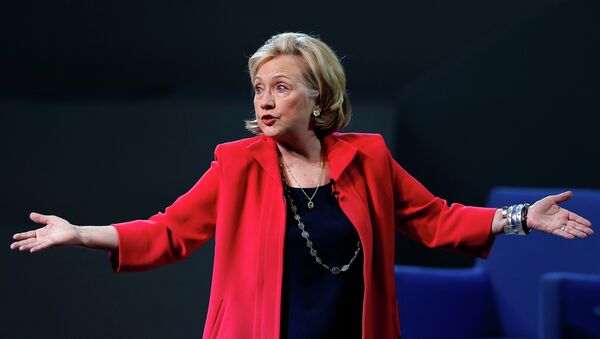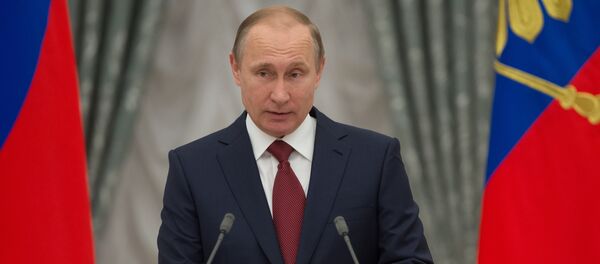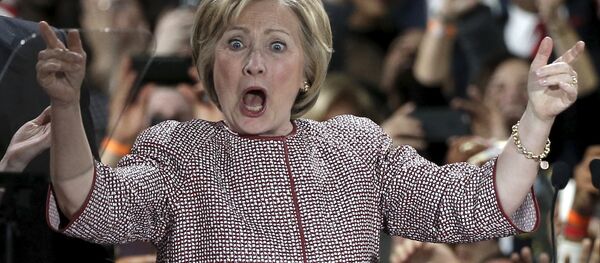By playing the "Russian card" against Donald Trump Hillary Clinton is trying to divert the public opinion from a series of scandals, haunting the former Secretary of State; however, this strategy may finally backfire against the Democratic presidential nominee herself, Russian media outlet Vzglyad notes.
Alexander Antoshin of Vzglyad recalls that the Clinton camp has repeatedly tried to stigmatize Donald Trump referring to his alleged ties with Russia.
For instance, the Washington Post dug into Trump's financial ties to Russia in June 2016. However, Trump's cooperation with Aras Agalarov, an Azeri-born real estate developer in Russia, could not mar the image of the Republican presidential candidate in the eyes of the American public, Antoshin notes.
Instead of investigating the case, the Clinton camp unleashed an all-out campaign against phantom Russian hackers behind the leak.
Antoshin underscores that while initially the reports covering the leak contained cautious doubts regarding the "Russian link," the narrative soon changed with US officials asserting that Russia played a role in the hack to influence the presidential election in favor of Donald Trump.
Remarkably, no evidence has been presented to prove the accusations.
In his interview with RT whistleblower Julian Assange dispelled the Clinton camp's myth of Russia having a hand in the leak. The whistleblower also noted that the reason why people might want to know who the source of the documents was to determine the authenticity of the files leaked.
"Everyone accepts that the emails that we published, the 20,000 leaked DNC emails, are accurate. Nobody is saying that they did not say something that was listed in the emails," Assange underscored.
The agency also denounced the idea that the Russian intelligence service could leave such signatures as "Fancy Bear" and "Cozy Bear" as nonsensical.
Still, not the emails' embarrassing content, but the idea of a mythical Russian interference into the US presidential elections grabbed the US mainstream media headlines.
The Clinton campaigners went even further, branding not only Trump but also the Green Party candidate, Jill Stein, as a "Russian tool."
"This smear tactic extends far beyond Trump. It is now used to vilify anyone perceived to be an impediment to Clinton's victory," Glenn Greenwald of The Intercept noted in one of his recent articles.
Antoshin believes that Hillary Clinton's attempts to accuse Trump of "cozying up" with the Kremlin may backfire.
While Trump's links to Russia appear to be nothing more than hot air, there is clear evidence of Clinton playing a role in a deal that provided control of one of America's largest uranium mines to Moscow.
Moreover, "coincidentally," Bill Clinton received $500,000 for a Moscow lecture from a Russian investment bank following the deal.
There is yet another side-effect of the Clinton-led anti-Russian propaganda campaign, Antoshin notes: the Gallup polls show that the number of respondents voicing unfavorable opinion of Russia has decreased from 70 percent in 2015 to 65 percent, while the number of Americans with a favorable attitude toward Russia has increased from 24 percent in 2015 to 30 percent in 2016.
The Russian journalist highlights that these changes look especially interesting in the context of the ongoing anti-Russian campaign in the US.





